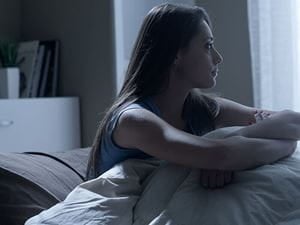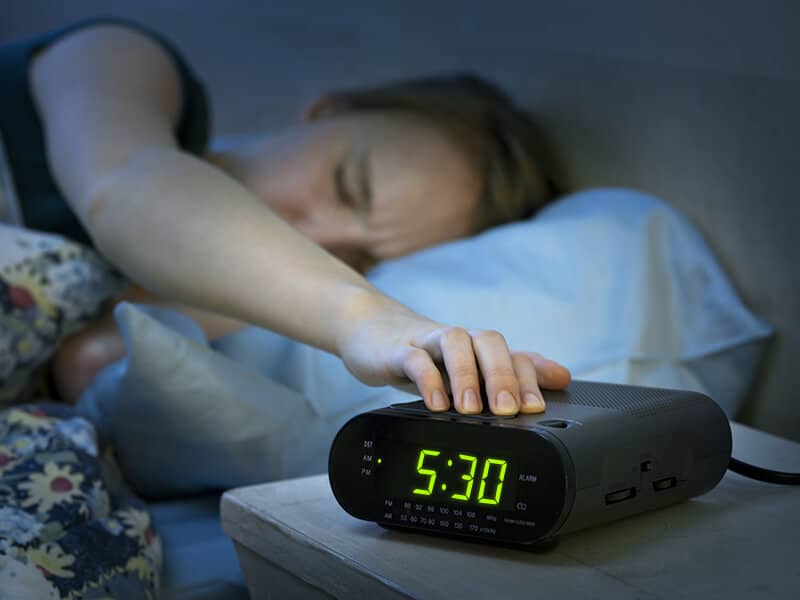
Sleep disorders are an epidemic in America. More than 26 percent of Americans suffer from some sort of sleeping disorder, but there are likely millions more cases that are never reported. Scientists estimate that nearly 80 percent of people who suffer from Obstructive Sleep Apnea are unaware that they developed the disorder. Few people seek medical attention for insomnia, so the underlying causes often go untreated. Some sufferers of sleep disorders are unaware that there is something wrong because they are surrounded by people who choose to be sleep deprived. It is impossible to tell through everyday conversation who is sporting dark circles under their eyes because they were up late scrolling through Instagram and who has an untreated medical sleep disorder.
Both normal sleepers and those with sleep disorders scoff at the idea of seeking medical assistance with sleeping. Many people with mild or moderate sleep disorders are convinced that there is not really a serious problem. They are used to functioning without sleep and work in a culture that subconsciously encourages sleep deprivation. People brag about how little sleep they got over coffee in the break room. Rather than seeing that person as a poor time manager or a moron, people believe the sleep deprived person is a hard worker. On the flip side, the person who mentions that they got 10 hours of sleep last night faces sneers and contempt. Most people assume that person was lazy or is a boring person because, really, they didn’t have anything else to do besides sleep?
Sleep has become an afterthought, the necessary evil that a hard worker or fun loving soul minimizes. Sleep has come to be seen as a waste of time or a luxury instead of a biological imperative. People who suffer from chronic sleep deprivation often develop serious mental and physical problems.
While some people choose to go without sleep, there is, unfortunately, a large group of people who do prioritize sleep but are physically unable to get the rest they need. Sleep disorders can be difficult to recognize or separate from environmental sleep obstructions such as stress or a partner who is a restless sleeper. There are, however, documented symptoms that come from sleeping disorders, and those who exhibit these symptoms should consult a sleep specialist. Here are six signs that a person may have a sleep disorder.
Snoring
One of the biggest concerns about sharing a room with anyone is whether or not they snore. More than one spouse has found themselves sleeping on the couch because they snore. Snoring, however, can be a sign of more than a need to set up a second bedroom. Snoring is one of the most common symptoms of Obstructive Sleep Apnea or OSA. OSA occurs when a person’s airway is blocked during the night. As the amount of oxygen they take in decreases, they begin to awaken. In rare cases, a person wakes up gasping for air, but most people with OSA have no idea that they are lacking air at night. They think they are waking up for other reasons, if they even reach full consciousness. Some people who suffer from OSA do not wake up entirely. They are pulled out of REM or slow wave sleep, but they never attain full consciousness. As such, they may not even be aware of an issue unless they have a spouse or roommate who can inform them that they snore like a chainsaw.Someone who snores loudly or every night should consider having a sleep study done, especially if they also wake up repeatedly in the night or do not feel rested in the morning. They may be suffering from OSA.
Waking Repeatedly
Waking up once in the middle of the night is not all that unusual. When a person wakes up multiple times each night, however, there may be a problem. Waking repeatedly is a symptom of multiple sleeping disorders including overproduction of melatonin, clinical insomnia and all three forms of sleep apnea.Repeatedly waking during the night is sometimes caused by environmental factors instead of an undiagnosed sleep disorder. A person who drinks alcohol close to bedtime, eats a heavy meal late at night or does not exercise regularly may also wake up in the middle of the night repeatedly. Stress can also cause this phenomenon. In these cases, a person may begin sleeping through the night once more after they start eating earlier or cut back on the alcohol.
Many people struggle to sleep through the night when they move because they are not yet familiar with the background noise of their new home. Someone who is new to a city might wake up whenever a motorcycle drives under their window, even if they don’t remember hearing the bike. On the flip side, a city dweller who moves to the country may struggle to sleep without background noise. In either case, a white noise machine may solve the problem by keeping a consistent level of noise throughout the night.
Difficulty Falling Asleep
Some people go to bed at a reasonable hour but end up laying awake in bed for hours staring at the ceiling. This is the image that most people associate with insomnia, and in some cases, difficulty falling asleep is caused by clinical insomnia. Difficulty getting to sleep, however, can also be caused by a number of different sleeping disorders. A melatonin deficiency will keep a person from sleeping because it is a burst of melatonin that shuts the brain and body down for sleep. If there is not enough melatonin in a person’s system, they will not be able to get to sleep.Circadian rhythm disorders can also make it difficult for a person to get to sleep. Delayed Sleep Phase Syndrom (DSPS), for example, is a disorder where a person’s circadian rhythm is misaligned with the natural rhythms of the sun. Someone with DSPS will not be able to sleep until very late at night since their body will not register that it is night until long after the sun has set. Shift Work Sleep Disorder, a disorder that is most prevalent among those who work rotating or night shifts, causes similar effects.
Restless Movements
Restless movements at night could be a sign of either Restless Leg Syndrome (RLS) or Periodic Limb Movement Disorder (PLMD). RLS is characterized by an overwhelming need to move certain body parts. People suffering from RLS most commonly feel the need to move their legs, but the disorder can also affect a person’s arms, head or other body parts. These constant movements can keep a person from falling to sleep, but those who try to stay still are often kept awake by the sensation of aching, itching, burning or throbbing in their legs.PLMD occurs when a person is asleep. Someone suffering from PLMD will flex or move their body, usually their legs, while they are sleeping. These spasms often cause a person to briefly awaken or pull them from REM sleep. This results in a lack of rejuvenating sleep and daytime sleepiness.
Waking Exhausted
It is normal to have an occasional night when a person goes to bed at a reasonable hour but wakes up in the morning feeling like they never went to sleep. This should, however, be a rarity. When a person consistently wakes up without feeling refreshed, they may be suffering from a sleep disorder that pulls them out of deep or REM sleep. This will leave a person lacking the rejuvenating periods of sleep without ever truly waking. This can be caused by a number of sleep disorders including all three types of sleep apnea, PLMD and various forms of clinical insomnia. If there is no apparent environmental cause such as a recent move, a change in diet or stress, talk to a sleep specialist to see if an undiagnosed sleeping disorder is the cause.Sleep Talking, Walking or Acting
Most people have sleep-talked or sleepwalked at some point in their lives, but such actions normally fade as a person ages. Few adults sleepwalk or sleep-talk, but those that do need to consult a sleep specialist, especially if they are doing more than just walking a few steps around the room. Sleepwalking or sleep-talking in an adult is a symptom of REM Sleep Behavior Disorder (RBD). This disorder is characterized by a person “acting out” their dreams. They may talk to thin air, walk around the room or take other actions. This disorder can be extremely dangerous. While still asleep, a person suffering from RBD may lash out at their partner, trip over furniture or attempt to leave the house. There are cases of people who suffer from RBD turning on stoves, dismantling electrical sockets or trying to drive all while still asleep.RBD occurs when the paralysis that typically accompanies REM sleep is absent. There are multiple reasons this may occur including medications, degenerative neurological diseases or withdrawal. Regardless of the suspected cause, anyone suffering from RBD should seek medical attention before they accidentally injure themselves or another.
Sleep disorders can be difficult to self-diagnose. The surest way for any person to know if they have a sleep disorder is to take a sleep study at a certified sleep clinic. The sleep specialists will be able to determine if a sleep disorder is the cause of a person’s daytime sleepiness. For those that are diagnosed, be patient if the treatment does not work immediately. Sleep is still not a terribly well-understood phenomenon, so it may take doctors a few tries to find a treatment that works. Be patient, and think about how much better life will be without the fog of sleep deprivation.

